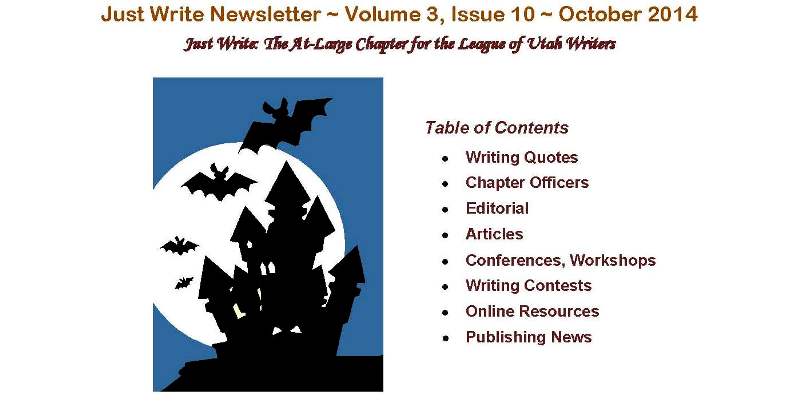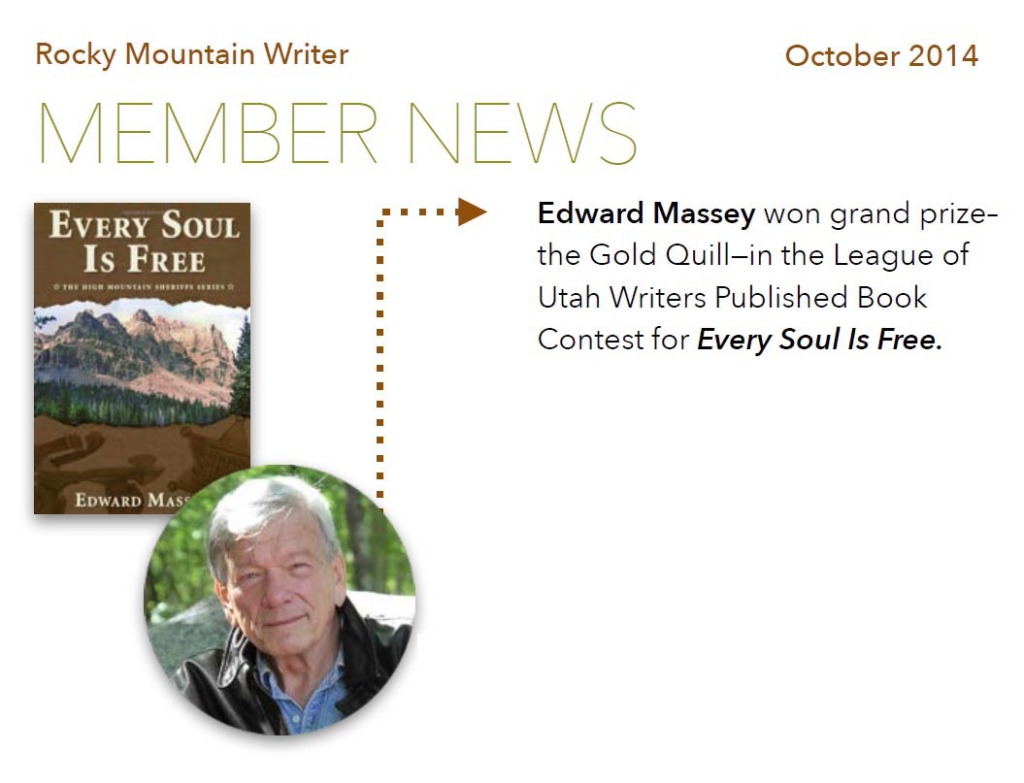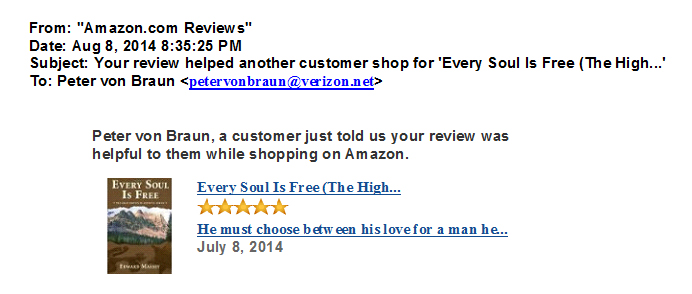In a short history of how Every Soul Is Free came to see the light of day, the trials of an adult-onset writer and his opinions on how the West and the western are unfortunately overlooked and often dismissed are not of much interest. What is of interest is “how the western novel is an unfortunately overlooked and often dismissed genre.” A painter and classmate used that phrase to start a discussion of his involvement with the art of the West, painting, sculpture, books, and movies.
I tried to get an agent, never did, no surprise for an unknown writer. Well-introduced to the most well-known agent representing western writers today, I uttered the first sentence of my pitch about a sheriff who is interrupted during Thanksgiving Dinner in 1948 and she stopped me to tell me the West ended in 1895. She could not sell such a book.
Born and raised in the West, far west of the Hudson, meaning not New Jersey, I am committed to a life of writing novels about ordinary men who live out heroic acts in facing every day. I see the west as a stage where this plays well. And it did not end in 1895.
That painter mentioned above is Mike Mazer and his words motivated this blog. “I love the geography of the west, the ‘wide open spaces’, the vistas, the topography, the variation, the history, the miles you can go with just plain nothing but the land…(I) fell in love with it and its vastness.”
Like me, Mike recognized that the first thing about that vast land is that it creates heroes. We all love heroes. “I love to see ‘bad guys’ brought to justice.” Westerns are the true American canvas for that. Beyond bringing bad guys to justice, self-reliance is the true stuff of heroes. Neither Westerners nor Americans are the only self-reliant people, but all self-reliant people are heroes in some way.
The West is the character of the land and the character of the people and some of them brought their pioneering spirit. Again, in Mike’s words, “people who took risks way beyond what I knew or know.” In this regard, the West has a really big capital W. You can start at the international dateline and travel west all around the world, reveling in pioneer spirit all the way around.
We’re at the beginning of this venture, so we really don’t know yet if we can sell a book that takes place in the West after 1895. What we really don’t know is if we can sell books about men and women who live inside the crucible created by the need to balance calling and family and work. I welcome you in joining me, again in Mike’s words, following “characters who took the other road.”

 The Rocky Mountain Writer is the monthly newsletter of Rocky Mountain Fiction Writers, dedicated to supporting, encouraging, and educating writers seeking publication in commercial fiction
The Rocky Mountain Writer is the monthly newsletter of Rocky Mountain Fiction Writers, dedicated to supporting, encouraging, and educating writers seeking publication in commercial fiction
 “Where the hell did she come from?” about a character who placed a call in the eighteenth chapter. I had been living with her since the eleventh chapter, but apparently the reader hadn’t. Major work to solve.) Anyway, debate aside, rewriting aside, I have a wonderful family of children and step-children (whom I think of without the “step-“) and they went running today in Portland, a half-marathon for some, a 5k for others. Everyone finished, in great time, and they are all beautiful, see them here.
“Where the hell did she come from?” about a character who placed a call in the eighteenth chapter. I had been living with her since the eleventh chapter, but apparently the reader hadn’t. Major work to solve.) Anyway, debate aside, rewriting aside, I have a wonderful family of children and step-children (whom I think of without the “step-“) and they went running today in Portland, a half-marathon for some, a 5k for others. Everyone finished, in great time, and they are all beautiful, see them here.